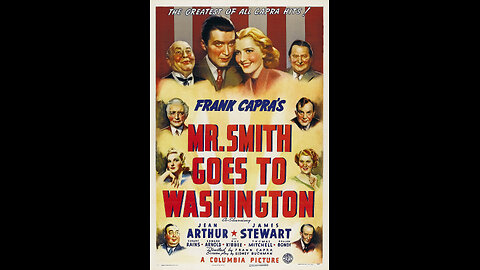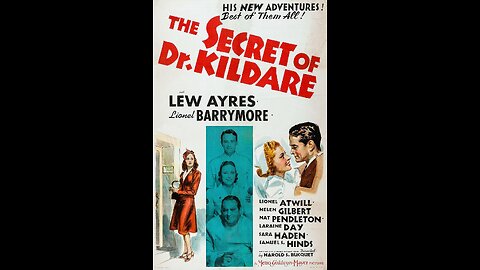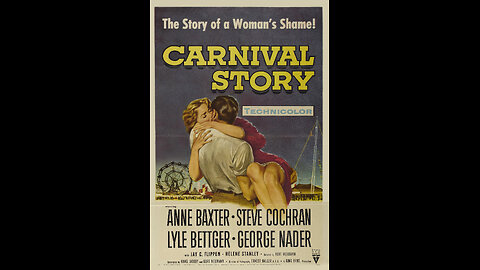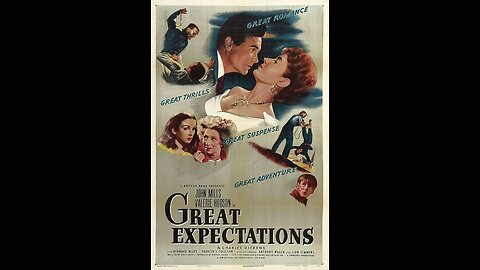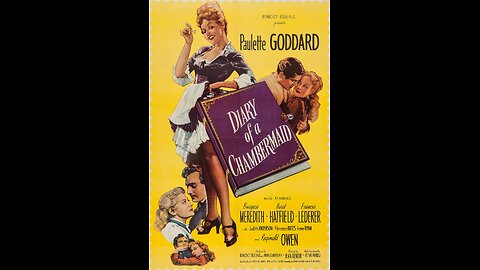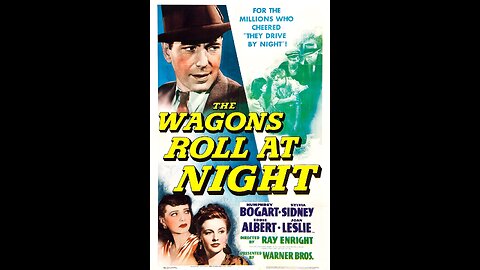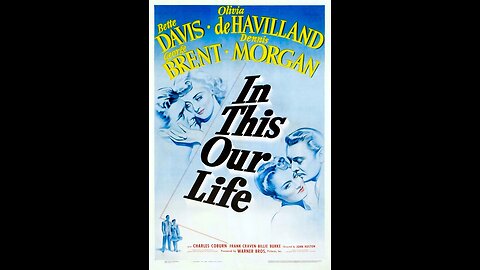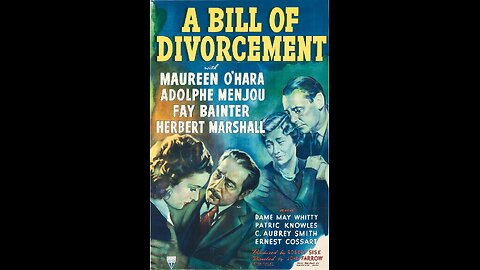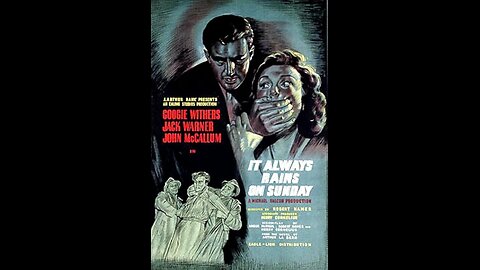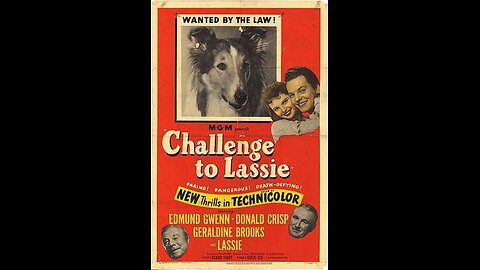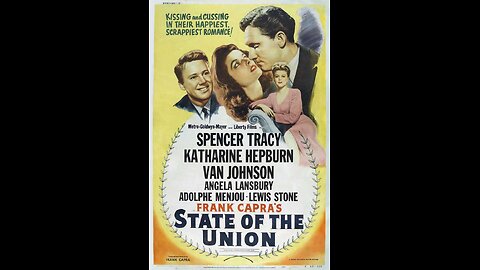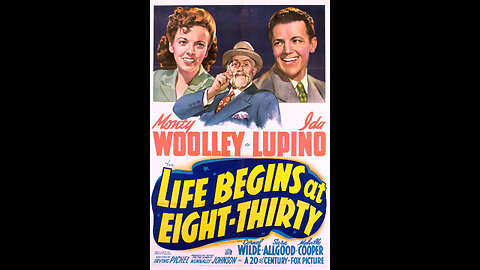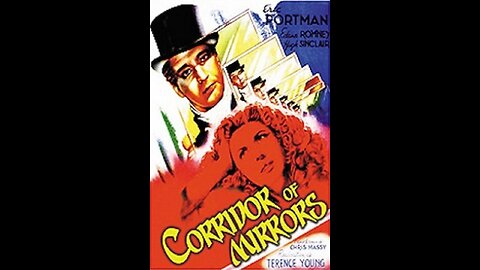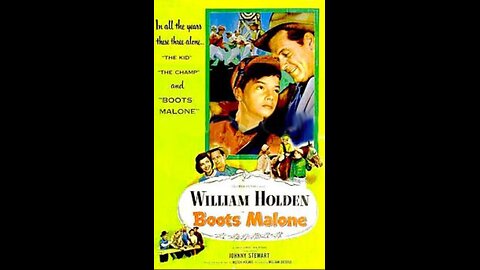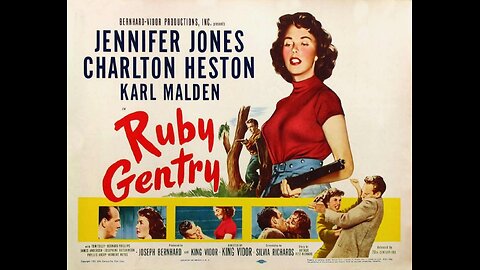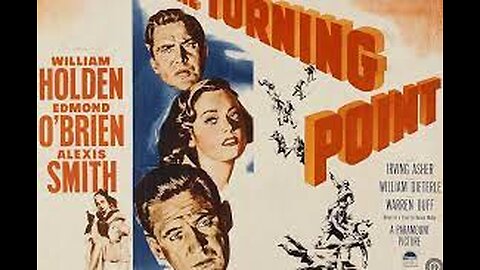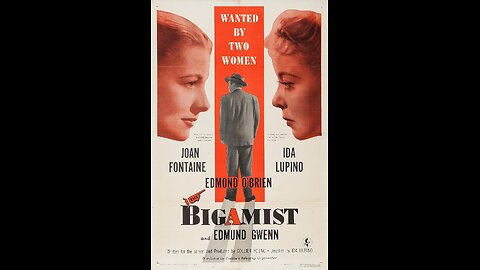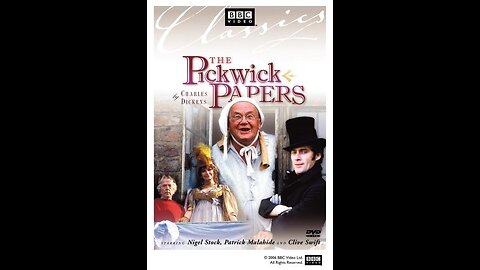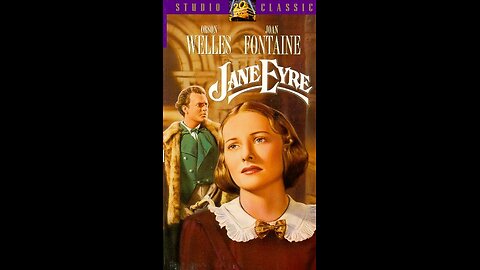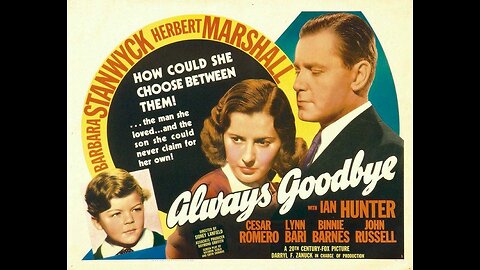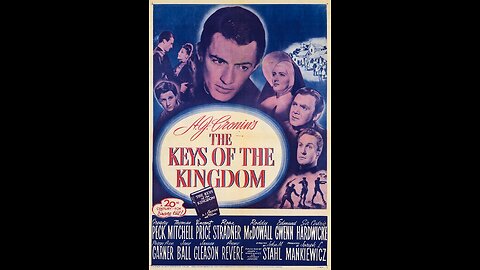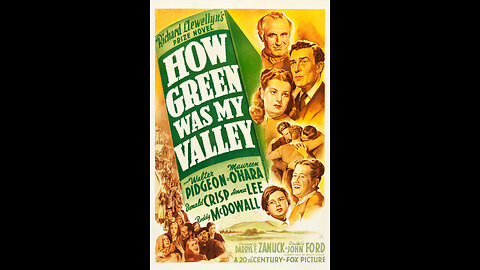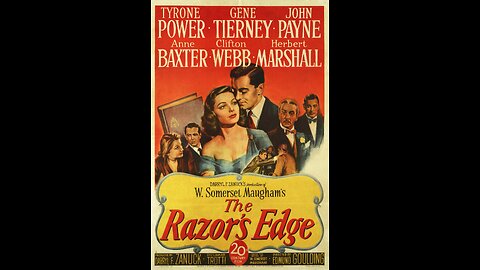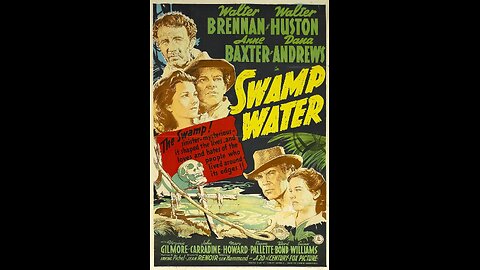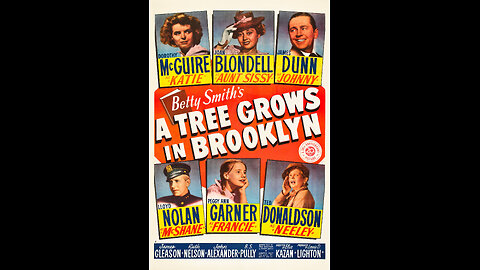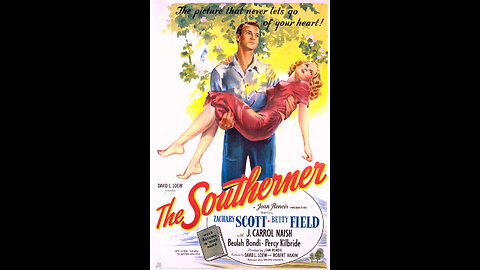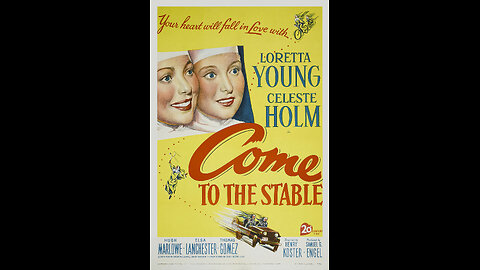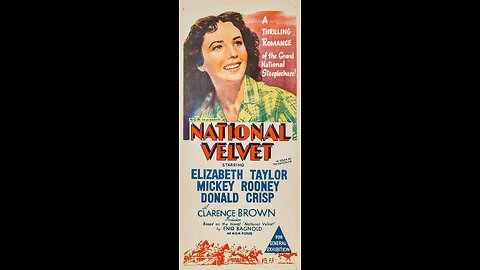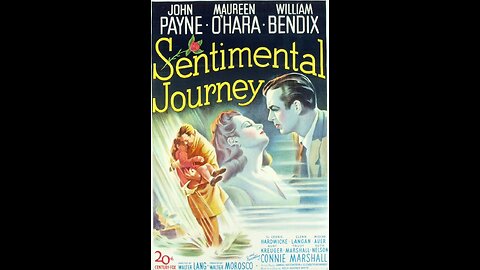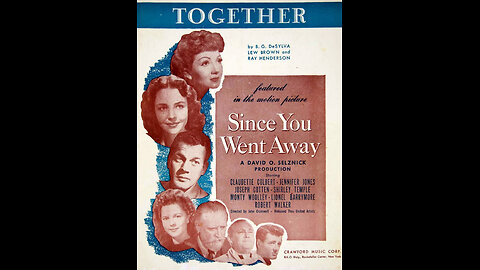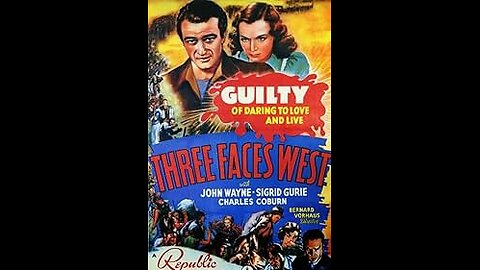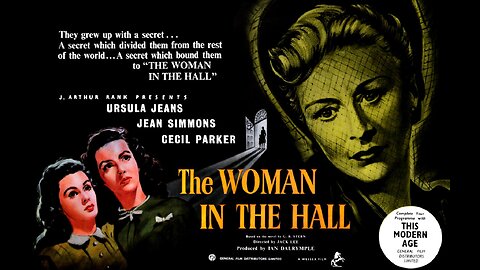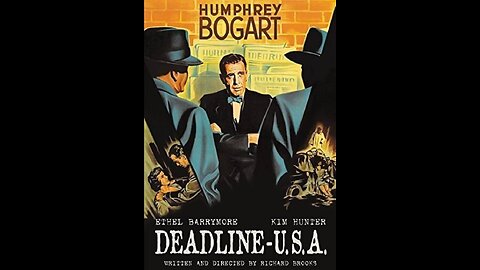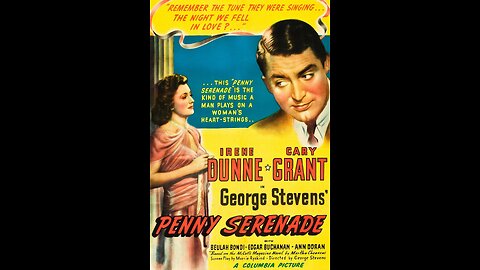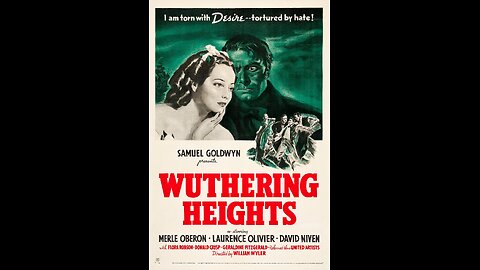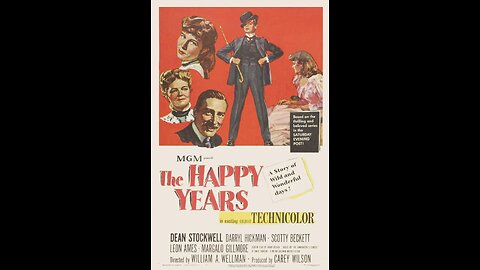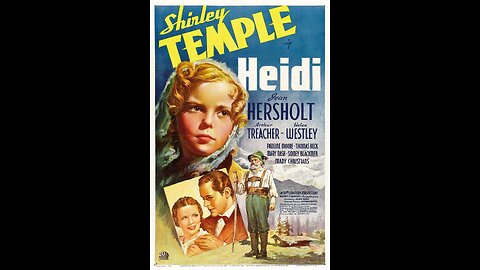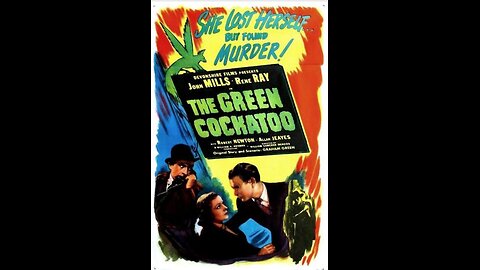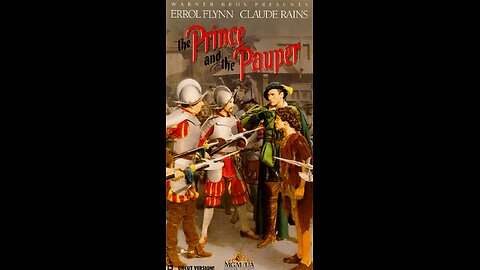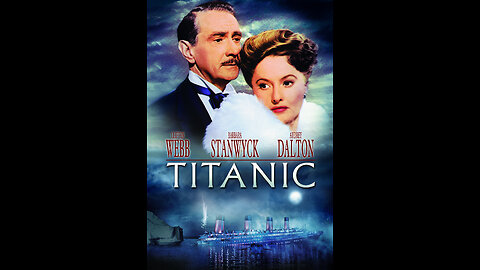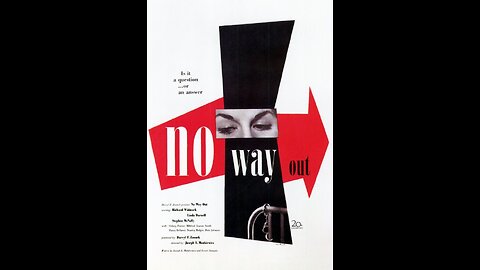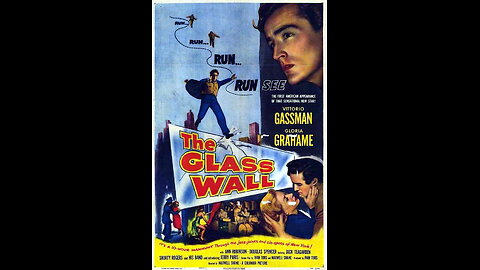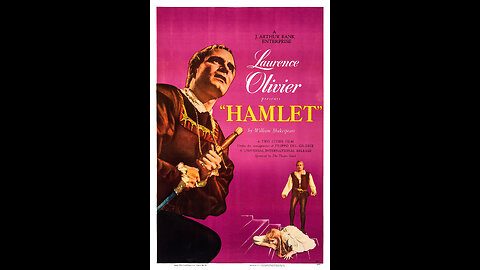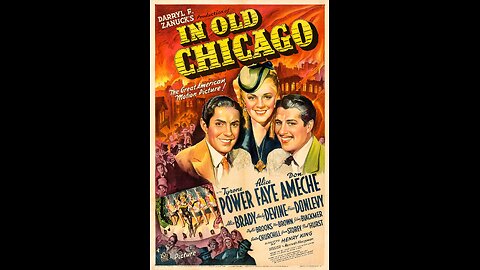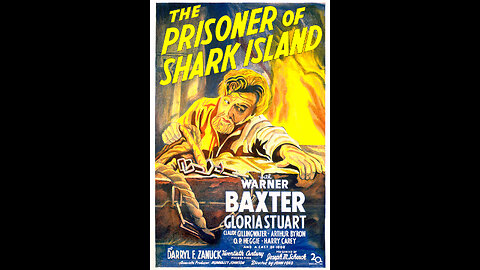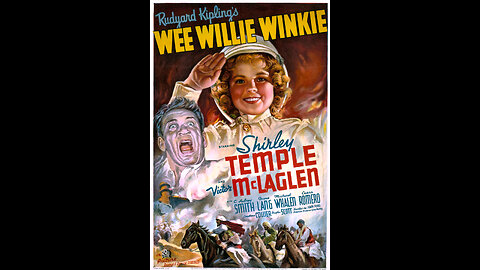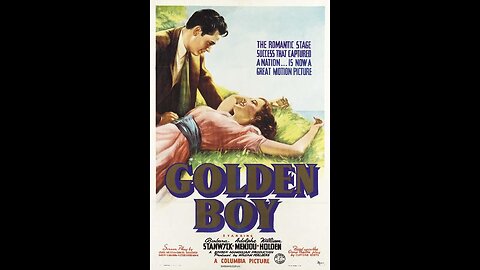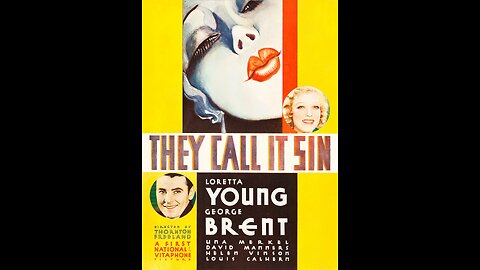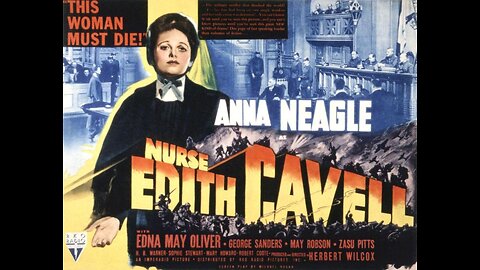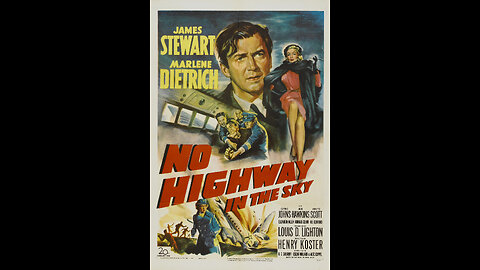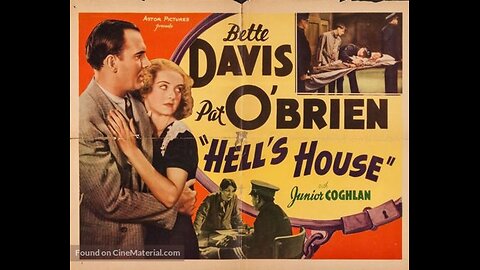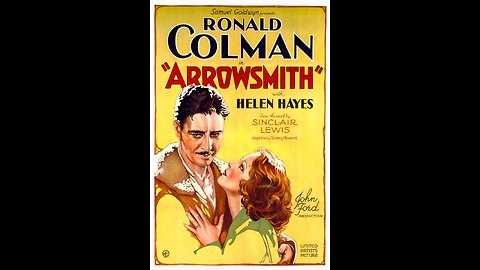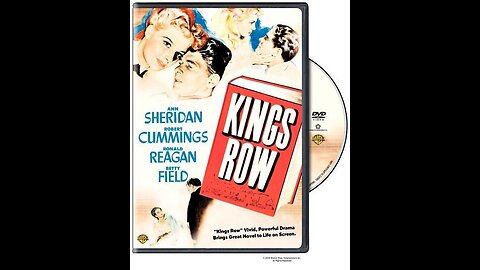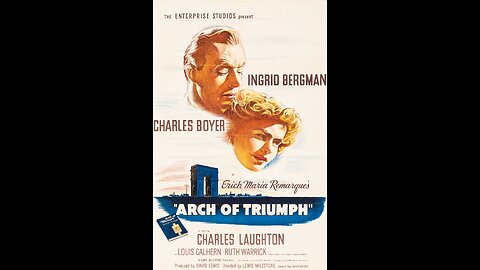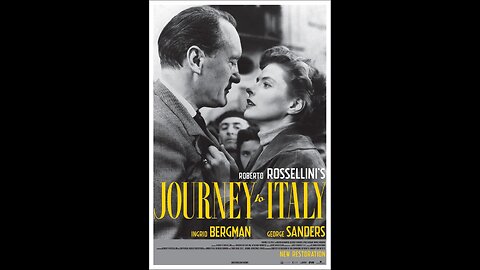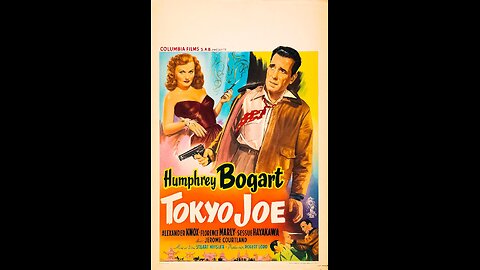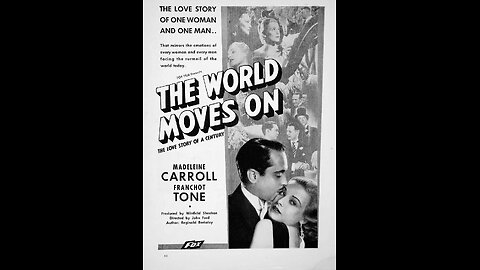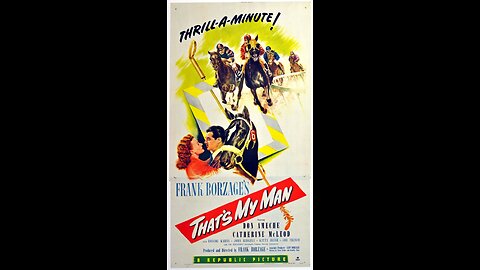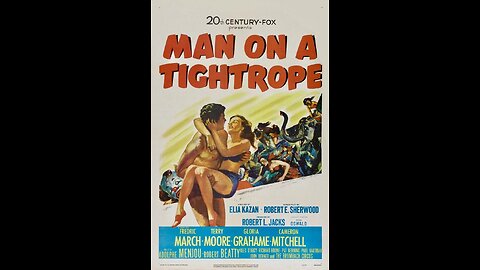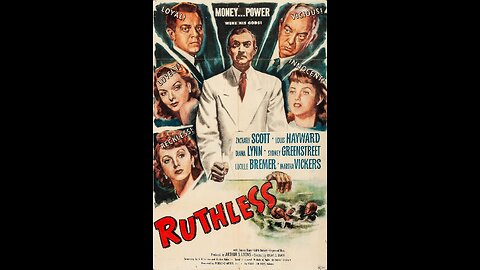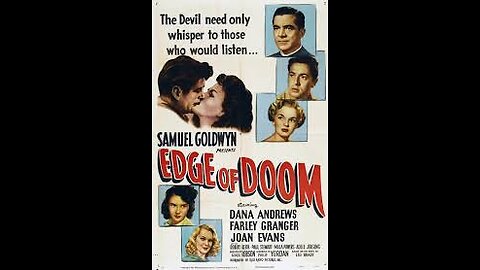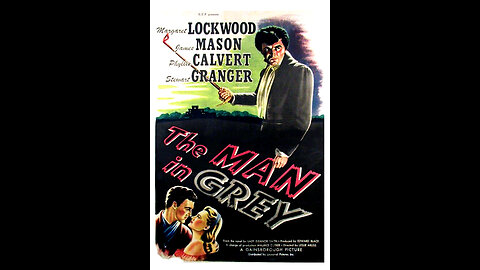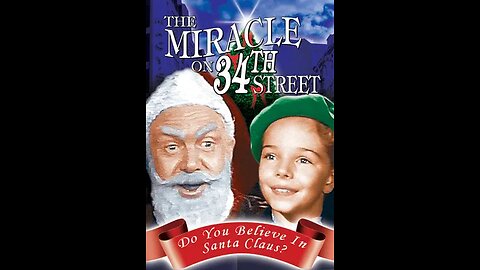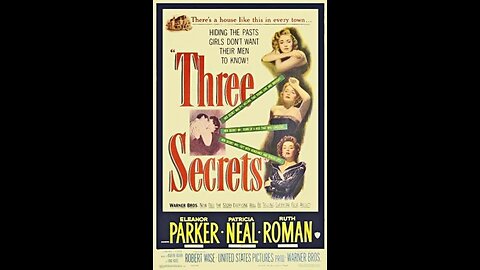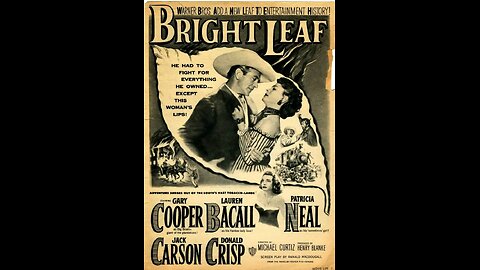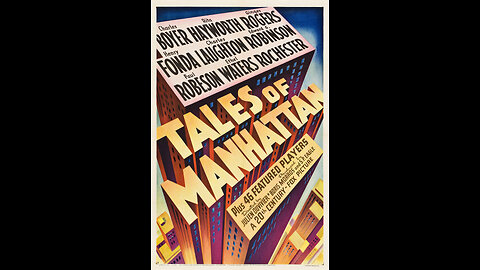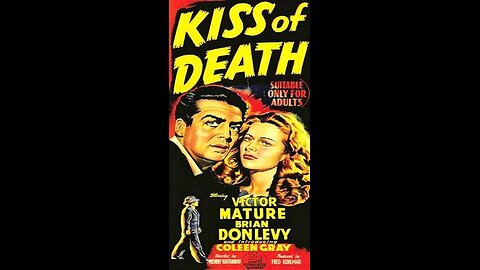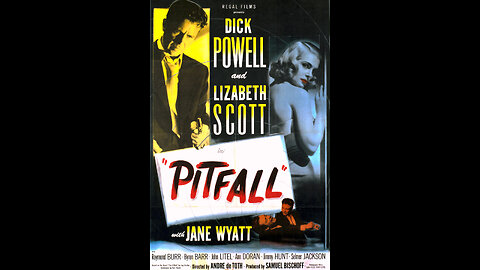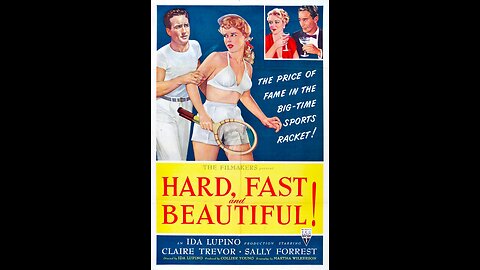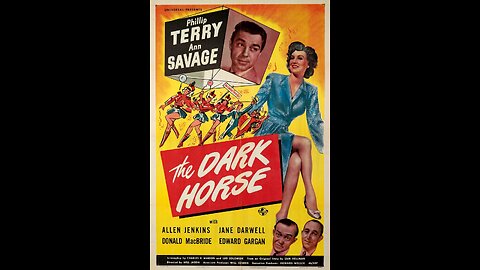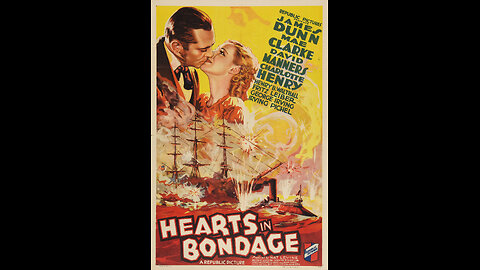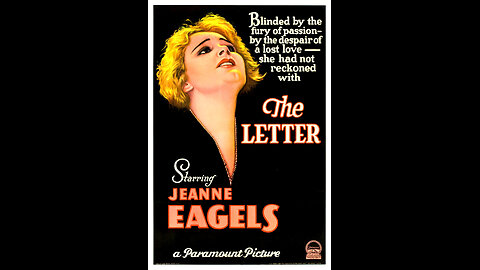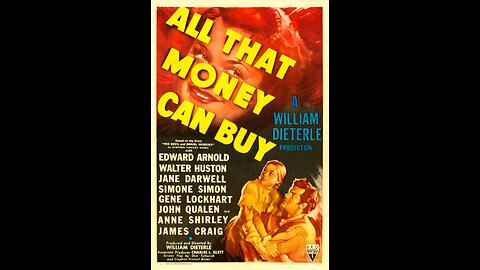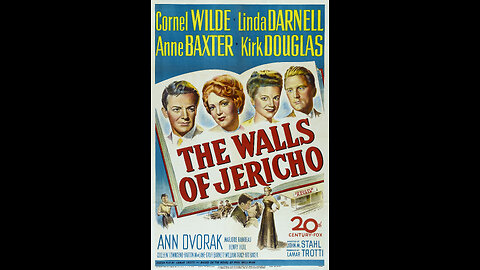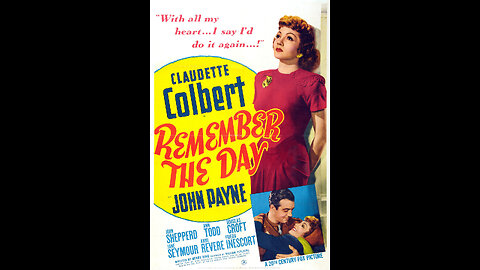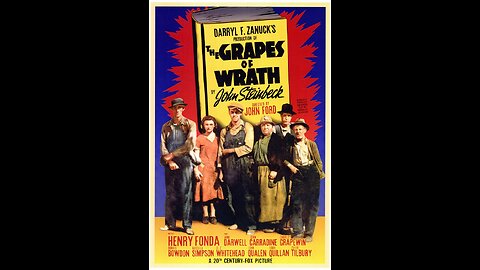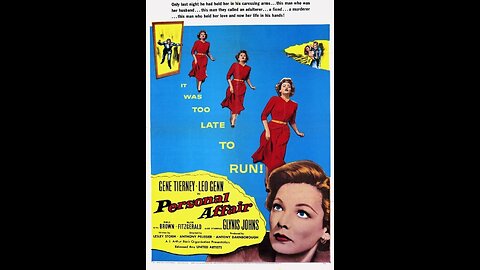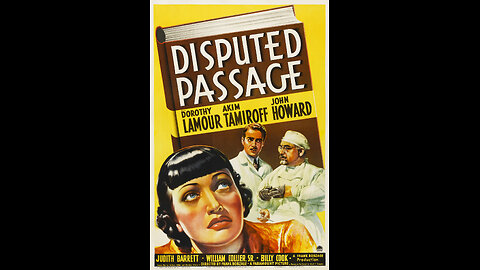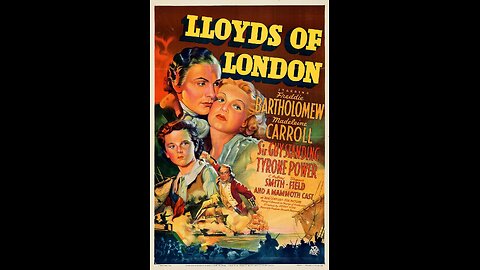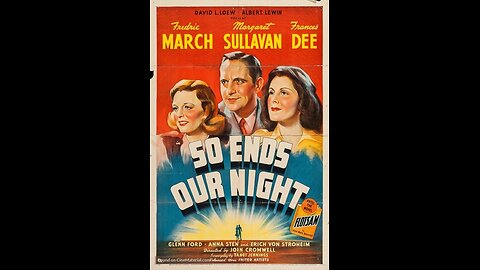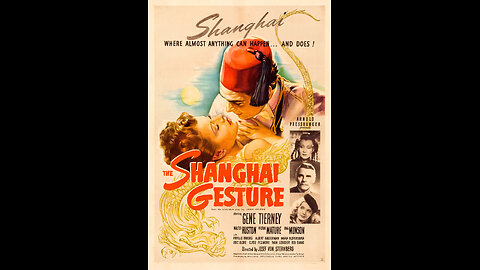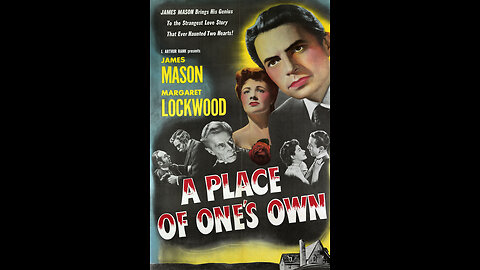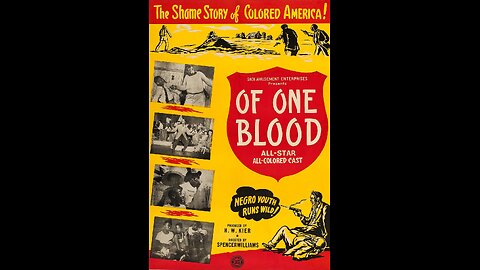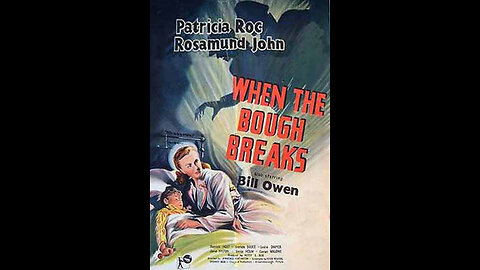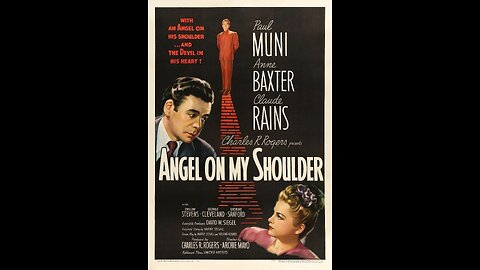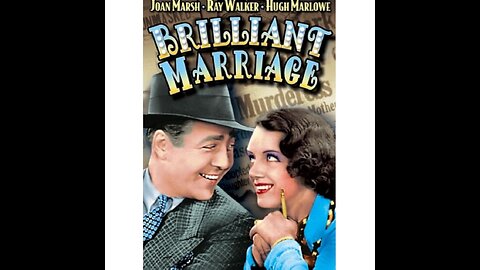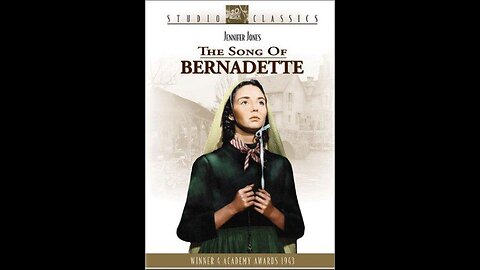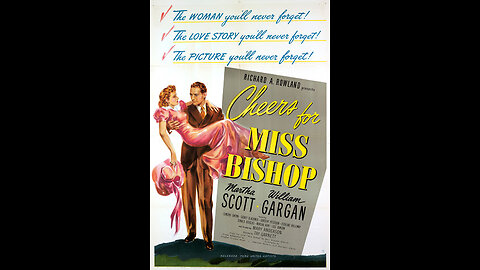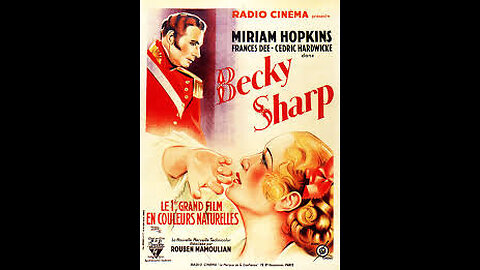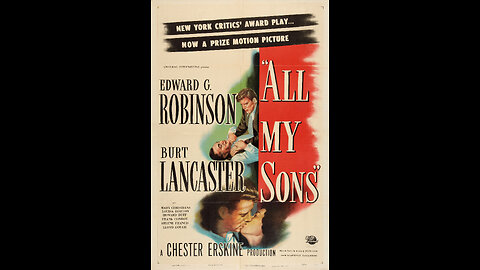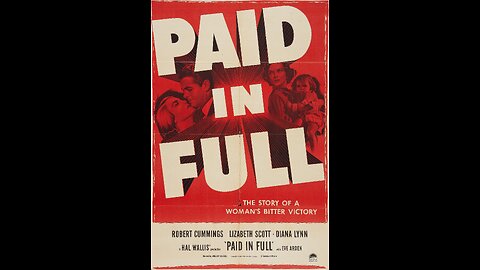Premium Only Content
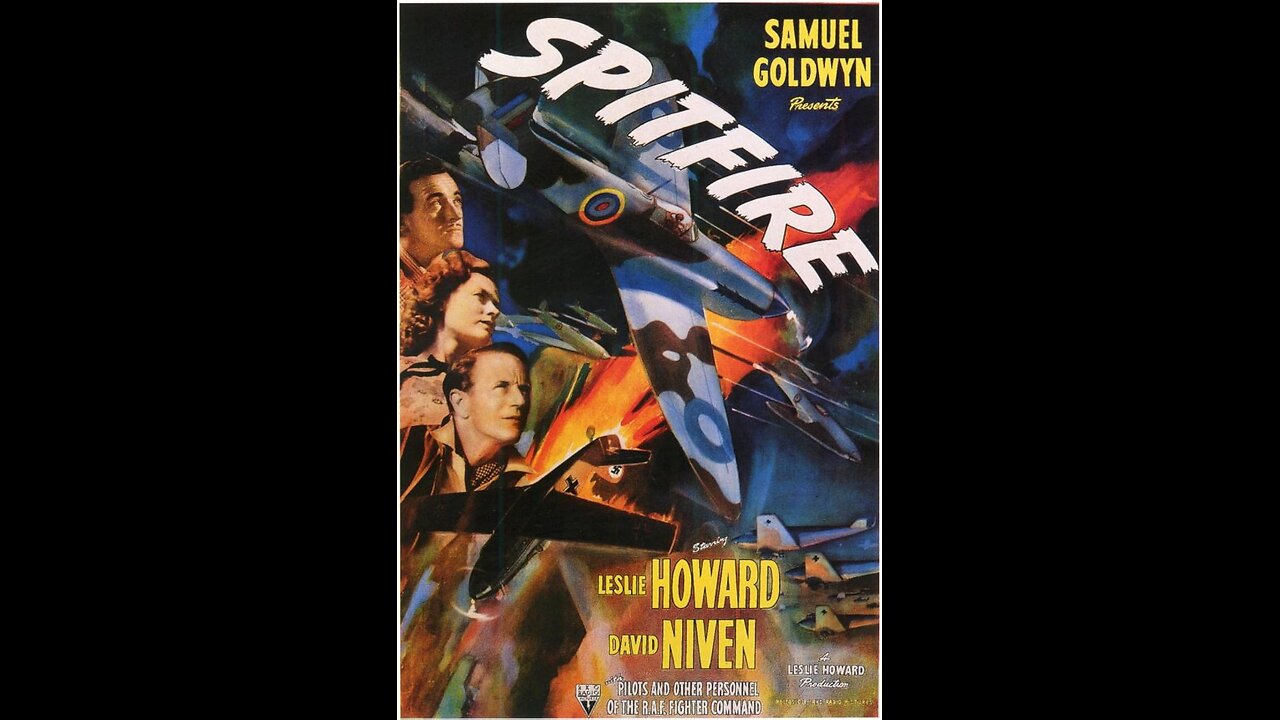
Mr. Smith Goes to Washington (1939) | Directed by Frank Capra
The Secret of Dr. Kildare (1939) | Directed by Harold S. Bucquet
Carnival Story (1954) | Directed by Kurt Neumann
Great Expectations (1946) | Directed by David Lean
The Diary of a Chambermaid (1946) | Directed by Jean Renoir
The Wagons Roll at Night (1941) | Directed by Ray Enright
The Wreck of the Hesperus (1948) | Directed by John Hoffman
In This Our Life (1942) | Directed by John Huston
A Bill of Divorcement (1940) | Directed by John Farrow
It Always Rains on Sundays (1947) | Directed by Robert Hamer
Challenge to Lassie (1949) | Directed by Richard Thorpe
State of the Union (1948) | Directed by Frank Capra
Life Begins at Eight-Thirty (1942) | Directed by Irving Pichel
Home Town Story (1951) | Directed by Arthur Pierson
Corridor of Mirrors (1948) | Directed by Terence Young
Boots Malone (1952) | Directed by William Dieterle
Ruby Gentry (1952) | Southern Gothic melodrama directed by King Vidor
Bad for Each Other (1953 ) | American drama film directed by Irving Rapper
Dragonwyck (1946) | A Gothic drama film directed by Joseph L. Mankiewicz
Oliver Twist (1948) | Directed by David Lean
The Turning Point (1952) | British drama film directed by Michael Relph
The Bigamist (1953) | American drama film directed by and starring Ida Lupino
The Bells of St. Mary's (1945) | American drama film directed by Leo McCarey
The Pickwick Papers (1952) | Directed by Noel Langley
Little Lord Fauntleroy (1936) | American drama film directed by John Cromwell
The Rains Came (1939) | American drama film directed by Clarence Brown
Jane Eyre (1943) : Director - Robert Stevenson
Always Goodbye (1938) | Directed by Sidney Lanfield
Molly and Me (1945) | Directed by Lewis Seiler
Pinky (1949) | Groundbreaking drama directed by Elia Kazan
The Keys of the Kingdom (1944) | Directed by John M. Stahl
How Green Was My Valley (1941) | Directed by John Ford
The Razor's Edge (1946) | Drama directed by Edmund Goulding
Swamp Water (1941) | A compelling drama directed by Jean Renoir
A Tree Grows in Brooklyn (1945) | Directed by Elia Kazan
The Southerner (1945) | Drama directed by Jean Renoir
Four in a Jeep (1951) | A drama film directed by Leopold Lindtberg
Come to the Stable (1949) | Directed by Henry Koster
National Velvet (1944) | Directed by Clarence Brown
Sentimental Journey (1946) | Directed by Walter Lang
Since You Went Away (1944) | American drama film directed by John Cromwell
"Three Faces West" (1940) | Directed by Bernard Vorhaus
The Green Promise (1949) | A family drama directed by William D. Russell
They Were Sisters (1945) | British drama film directed by Arthur Crabtree
The Woman in the Hall (1947) | British drama film directed by Jack Lee
Tobacco Road (1941) | Directed by John Ford
Lady for a Night (1942) | A captivating drama directed by Leigh Jason
Deadline USA (1952) | Directed by Richard Brooks
Penny Serenade (1941) | Directed by George Stevens
Wuthering Heights (1934) | Directed by William Wyler
The Little Princess (1939) | Directed by Walter Lang
The Happy Years (1950) | Directed by William A. Wellman
Heidi (1937) | Directed by Allan Dwan
The Green Cockatoo (1937) | British comedy directed by William Cameron Menzies
Now and Forever (1934) | Directed by Henry Hathaway
Leave Her to Heaven (1945) | Directed by John M. Stahl
The Prince and the Pauper (1937) | Directed by William Keighley
Beloved Enemy (1936) | Directed by H.C. Potter
Titanic (1953) | Directed by Jean Negulesco
No Way Out (1950) | Directed by Joseph L. Mankiewicz
The Adventures of Tom Sawyer (1938) | Directed by Norman Taurog
The Glass Wall (1953) | Directed by Maxwell Shane
Paula (1952) | Directed by Rudolph Maté
Cyrano de Bergerac (1950) | Directed by Michael Gordon
The Soldier and the Lady (1937) | Directed by George Nichols Jr.
Hamlet (1948) | Directed by Sir Laurence Olivier
The Seventh Veil (1945) | Directed by Compton Bennett
In Old Chicago (1937) | Directed by Henry King
The First of the Few (1942) / Spitfire | Directed by Leslie Howard
The Rocking Horse Winner (1949) | Directed by Anthony Pelissier
The Prisoner of Shark Island (1936) | Directed by John Ford
Wee Willie Winkie (1937) | Directed by John Ford
Golden Boy (1939) | Directed by Rouben Mamoulian
They Call It Sin (1932) | Directed by Thornton Freeland
A Letter to Three Wives (1949) | Directed by Joseph L. Mankiewicz
Nurse Edith Cavell (1939) | Directed by Herbert Wilcox
No Highway in the Sky (1951) | Directed by Henry Koster
Hell's House (1932) | Directed by Howard Higgin
Fourteen Hours (1951) | Directed by Henry Hathaway
The Little Foxes (1941) | Directed by William Wyler
The Bad Sister (1931) | Directed by Hobart Henley
The Fountainhead (1949) | Directed by King Vidor
Of Human Bondage (1934) | Directed by John Cromwell
Arrowsmith (1931) | Directed by John Ford
From Here to Eternity (1953) | Directed by Fred Zinnemann
Oliver Twist (1933) | Directed by William J. Cowen
King's Row (1942) | Directed by Sam Wood
Not Wanted (1949) | Directed by Elmer Clifton
Summer Storm (1944) | Directed by Douglas Sirk
Arch of Triumph (1948) | Directed by Lewis Milestone
Journey to Italy (1954) | Directed by Roberto Rossellini
Tokyo Joe (1949) | Directed by Stuart Heisler
The World Moves On (1934) | Directed by John Ford
That's My Man (1947) | Directed by Frank Borzage
Brute Force (1947) | Directed by Jules Dassin
Wicked Woman (1953) | Directed by Russell Rouse
Lifeboat (1944) | Directed by Alfred Hitchcock
21 Days (1940) | Directed by Basil Dean
The President's Lady (1953) | A captivating historical drama
I Was a Shoplifter (1950) | A film noir crime drama directed by Charles Lamont
Man on a Tightrope (1953) | A gripping drama directed by the renowned Elia Kazan
The Baron of Arizona (1950) | Historical drama directed by Samuel Fuller
The Long Memory (1953) | Directed by Robert Hamer
Ruthless (1948) | Directed by Edgar G. Ulmer
Edge of Doom (1950) | Directed by Mark Robson
Man in Grey (1943) | Directed by Leslie Arliss
Miracle on 34th Street (1947) | Directed by George Seaton
Three Secrets (1950) | Directed by Robert Wise
Bright Leaf (1950) | Directed by Michael Curtiz
Tales of Manhattan (1942) | Directed by Julien Duvivier
The Wild One (1953) | Directed by László Benedek
The Prowler (1951) | Directed by Joseph Losey
Kiss of Death (1947) | Directed by Henry Hathaway
Pitfall (1948) | Directed by André de Toth
Hard, Fast and Beautiful! (1951) | Directed by Ida Lupino
The Dark Horse (1946) | Directed by Delmer Daves
Hearts in Bondage (1936) | Directed by Lew Ayres
The Letter (1929) | Directed by Jean de Limur
All That Money Can Buy (aka The Devil and Daniel Webster) (1941) | Directed by William Dieterle
The Walls of Jericho (1948) | Directed by John M. Stahl
Remember the Day (1941) | Directed by Henry King
The Grapes of Wrath (1940) | Directed by John Ford
The Moon is Down (1943) | Directed by Irving Pichel
Beyond Tomorrow (1940) | Directed by A. Edward Sutherland
Personal Affair (1953) | Directed by Anthony Pelissier
Under My Skin (1950) | Directed by Jean Negulesco
Serpent of the Nile (1953) | Directed by William Castle
Black Narcissus (1947) | Directed by Michael Powell & Emeric Pressburger
The Last Command (1928) | Directed by Josef von Sternberg
Deep Waters (1948) | Directed by Henry King
Disputed Passage (1939) | Directed by Frank Borzage
Little Men (1940) | Directed by Norman Z. McLeod
The Old Swimmin' Hole (1940) | Directed by Robert F. McGowan
The Weaker Sex (1948) | Directed by Roy Ward Baker
Lloyd's of London (1936) | Directed by Henry King
So Ends Our Night (1941) | Directed by John Cromwell
The Shanghai Gesture (1941) | Directed by Josef von Sternberg
This Happy Breed (1944) | Directed by David Lean
A Place of One's Own (1945) | Directed by Bernard Knowles
Little Man, What Now? (1934) | Directed by Frank Borzage
Of One Blood (1944) | Directed by Spencer Williams
When the Bough Breaks (1947) | Directed by Lawrence Huntington
Angel on My Shoulder (1946) | Directed by Archie Mayo
Brilliant Marriage" (1936) | Directed by Phil Rosen
The Song of Bernadette (1943) | Directed by Henry King
Cheers for Miss Bishop (1941) | Directed by Tay Garnett
Becky Sharp (1935) | Directed by Rouben Mamoulian
All My Sons (1948) | Directed by Irving Reis
Paid in Full (1950) | Directed by William Dieterle
The First of the Few (1942) / Spitfire | Directed by Leslie Howard
"The First of the Few" (1942), directed by Leslie Howard, is a biographical drama that pays tribute to the life and achievements of Reginald Joseph Mitchell, the British aircraft designer responsible for the Supermarine Spitfire. The film unfolds against the backdrop of World War II, capturing Mitchell's journey from a dedicated engineer to the creator of one of the most iconic fighter planes in aviation history. (Also known by the title "Spitfire" in the United States)
Leslie Howard stars as R.J. Mitchell, portraying the engineer's passion for aeronautics and his determination to design an advanced fighter aircraft that would play a crucial role in the defense of Britain. The narrative is framed as a flashback, with Mitchell reflecting on his experiences while grappling with failing health.
The film delves into Mitchell's collaboration with test pilot Geoffrey Crisp, played by David Niven, as they work against time and obstacles to perfect the Spitfire. Mitchell's personal life, including his relationship with his wife Diana, portrayed by Rosamund John, is interwoven with the professional challenges he faces.
Leslie Howard's Portrayal: Leslie Howard delivers a poignant and nuanced portrayal of R.J. Mitchell. His performance captures Mitchell's dedication to his craft, the emotional toll of wartime pressures, and the visionary spirit that drove the creation of the Spitfire.
Historical Accuracy and Tribute: "The First of the Few" is notable for its commitment to historical accuracy in depicting Mitchell's life and the development of the Spitfire. The film serves as a tribute to the individuals behind the scenes whose contributions were vital to the war effort.
Geoffrey Crisp and David Niven's Performance: David Niven's portrayal of Geoffrey Crisp adds depth to the narrative, illustrating the collaborative effort between designer and test pilot. Niven brings charm and authenticity to his role, portraying Crisp as a key figure in Mitchell's endeavors.
Romantic Elements and Rosamund John's Role: The inclusion of Mitchell's personal life, particularly his relationship with his wife Diana, provides a humanizing element to the story. Rosamund John's performance adds emotional resonance to Mitchell's character, emphasizing the sacrifices made by those on the home front.
Technical and Aeronautical Achievements: The film effectively conveys the technical challenges and triumphs associated with aircraft design. Aeronautical enthusiasts and history buffs appreciate the attention to detail in showcasing the evolution of the Spitfire.
Flashback Structure: The use of a flashback structure, with Mitchell reflecting on his life, adds a reflective and introspective layer to the narrative. This framing device allows the audience to witness the journey of a visionary mind.
Trevor Howard's Supporting Role: Trevor Howard's supporting role as the Officer Commanding the Training Squadron contributes to the film's military and wartime atmosphere. The ensemble cast enhances the authenticity of the story.
Cinematography and Period Setting: The film benefits from well-crafted cinematography, capturing the period setting and the technological advancements of the time. The aerial sequences and depictions of the Spitfire in flight are visually impressive.
Legacy and Historical Significance: "The First of the Few" remains a significant cinematic portrayal of the Supermarine Spitfire's genesis. The film's legacy extends beyond its release, contributing to the historical documentation of aviation achievements during World War II.
In conclusion, "The First of the Few" stands as a heartfelt tribute to R.J. Mitchell and his pivotal role in the development of the Supermarine Spitfire. Leslie Howard's directorial vision and performance, along with a strong supporting cast, create a compelling narrative that blends personal drama with historical significance. The film remains a testament to the ingenuity and determination of individuals who played key roles in shaping the course of history.
Stars:
Leslie Howard as R.J. Mitchell
David Niven as Geoffrey Crisp
Rosamund John as Diana Mitchell
Roland Culver as Commander Bride
Anne Firth as Miss Harper
David Horne as Air Ministry Official
Derrick De Marney as Pilot Officer Willows
Trevor Howard as Officer Commanding Training Squadron
Judy Kelly as Girl in Montage Sequence
-
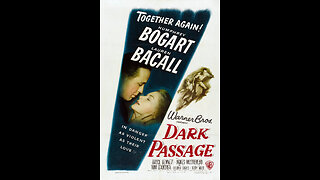 1:45:12
1:45:12
Classic Films & Movies Archive
5 days agoDark Passage (1947) | Directed by Delmer Daves
2152 -
 12:14
12:14
Nikko Ortiz
1 day agoMilitary Fails Of The Week
13.2K12 -
 1:16:31
1:16:31
Omar Elattar
9 months agoThe Untold Story: How Vans Became a $3 Billion Dollar Shoe Empire In 75 mins
19.9K9 -
 LIVE
LIVE
LethalPnda
2 hours agoLocked & Loaded! 🔥 Fate Trigger Beta #RazerCreator #SpacePanda @Mystivis
91 watching -
 LIVE
LIVE
BigDaddySlick78's Live Gaming Channel
2 hours ago💰I Pay You To Play Call of Duty Warzone Rebirth Island LIVE #callofduty #warzone #cod #gaming
51 watching -
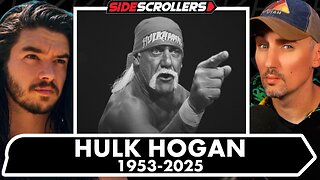 1:59:43
1:59:43
Side Scrollers Podcast
2 days agoRIP Hulk Hogan + Payment Processor CENSORSHIP Has Officially Begun + More | Side Scrollers
174K13 -
 LIVE
LIVE
Lofi Girl
2 years agoSynthwave Radio 🌌 - beats to chill/game to
276 watching -
 1:56:31
1:56:31
The Pascal Show
19 hours ago $6.35 earnedGHISLAINE FLIPS?! DOJ Receives SECRET LIST of 100 Epstein Associates!”
17.4K7 -
 10:17
10:17
Dr Disrespect
11 days agoIt's Time To Get Serious
186K31 -
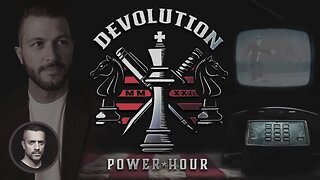 2:15:09
2:15:09
Badlands Media
1 day agoDevolution Power Hour Ep. 375: Obama’s Orders, Ukraine’s Collapse & the Inversion of Justice
309K122
